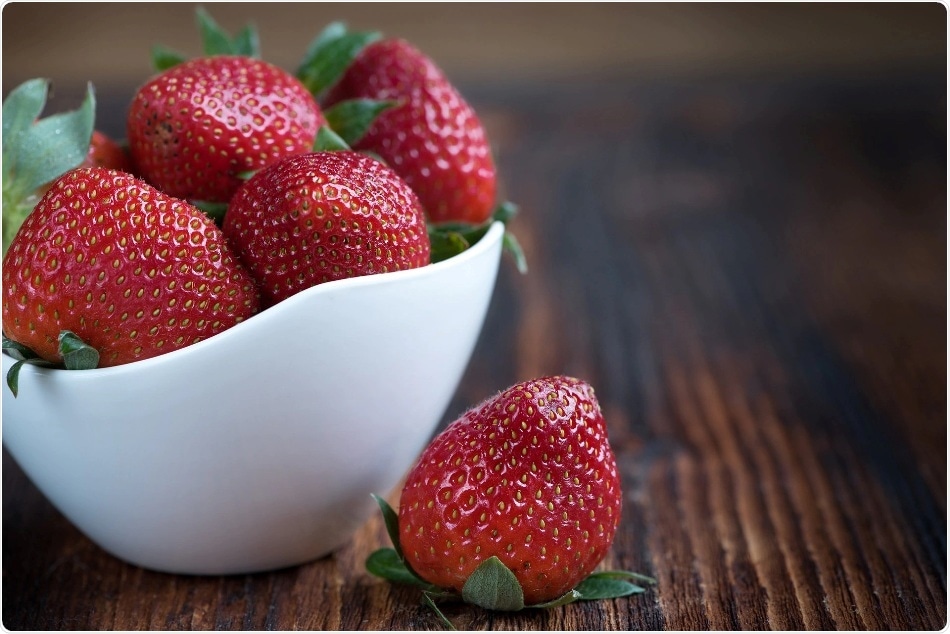Although it is known that food can taste different depending upon earlier experience, to date, the molecular pathways that regulate this effect are unknown.

The taste of sweetness is highly subjective. Image Credit: Pixabay.
Professor Greg Neely from the Charles Perkins Centre and School of Life and Environmental Sciences collaborated with Professor Qiaoping Wang (formerly at the Charles Perkins Centre and currently associated with Sun Yat-Sen University, China) and used fruit flies to analyze the sweet taste.
It was found that taste is highly subjective depending upon earlier experience.
According to Professor Neely, the study found four crucial things:
- The food consumed by animals can alter how they perceive future food.
- The same machinery used by the brain to learn is also used for this response.
- Pathways found to increase lifespan were also found to improve taste perception, and diets in fruit flies that support long life were involved in enhancing taste perception.
- Lifespan, sensory perception, and learning are related in ways that researchers have just started to understand.
Fruit fly “tongue”
We found that the fruit fly ‘tongue’—taste sensors on its proboscis and front feet—can learn things using the same molecular pathways that the fly brain uses to learn things. Central to this is the neurotransmitter dopamine.”
Greg Neely, Professor, Charles Perkins Centre and School of Life and Environmental Sciences, The University of Sydney
“It turns out these are also the same chemical pathways that humans use to learn and remember all sorts of things,” added Professor Neely. “This really highlights how learning is a whole-body phenomenon and was a complete surprise to us.”
We were surprised to find that a protein-restricted diet that makes an animal live much longer also turns up the intensity of sucrose perception for that animal, and that is dependent on the same learning and longevity pathways.”
Qiaoping Wang, Professor, Sun Yat-Sen University
Wang, who headed the study, continued, “The response was also really specific. For example, when we fed flies food that had no sweetness, the animals’ sweet taste perception was enhanced, but only for glucose, not for fructose. We have no idea why they specifically focus just on one kind of sugar when they perceive them both as sweet.”
“We also found that eating high amounts of sugar suppressed sweet taste perception, making sugar seem less sweet,” noted Professor Neely. “This finding, which occurs through a different mechanism, matched nicely with recent results from our colleague Monica Dus at the University of Michigan, who is the world expert in this area.”
Taste study
By changing the diet of the fruit fly (increasing protein, increasing sugar, changing sugar for complex carbohydrates, removing the taste of sugar), the researchers found there was a drastic change in how well the fruit fly could taste further sugar after a few days.
“We found that when flies ate unsweetened food, this made sugary food taste much more intense,” stated Professor Wang.
“Then we looked at all the proteins that changed in the fruit fly ‘tongue’ in response to diet, and we investigated what was happening,” added Professor Neely.
The sensation of taste was found to be regulated by dopamine (the “reward” neuromodulator). Then, the pathway was mapped and it was identified that the same pathways are known to control learning and memory or promote long life also improve taste sensation.
“While this work was conducted in fruit flies, the molecules involved are conserved through to humans. We know humans also experience changes in taste perception in response to diet, so it’s possible the whole process is conserved; we will have to see,” explained Professor Wang.
The study, which was reported in Cell Reports, is a follow-up study to Professor Neely’s research that investigates the effects of artificial sweeteners.
That study concluded artificial sweeteners trigger a neuronal starvation pathway and promote increased food intake, specifically when combined with a low-carb diet.
Our first studies were focused on how different food additives impact the brain, and from this we found taste changed in response to diet, so here we followed up that observation and describe how that works. Turns out the fly ‘tongue’ itself is remembering what has come before, which is kind of neat.”
Greg Neely, Professor, Charles Perkins Centre and School of Life and Environmental Sciences, The University of Sydney
A Fruit Fly eating with its tongue
The fruit fly “tongue” is a proboscis, an elongated sucking mouthpart. Video Credit: The University of Sydney.
Source:
Journal reference:
Wang, Q.-P., et al. (2020) PGC1α Controls Sucrose Taste Sensitization in Drosophila. Cell Reports. doi.org/10.1016/j.celrep.2020.03.044.